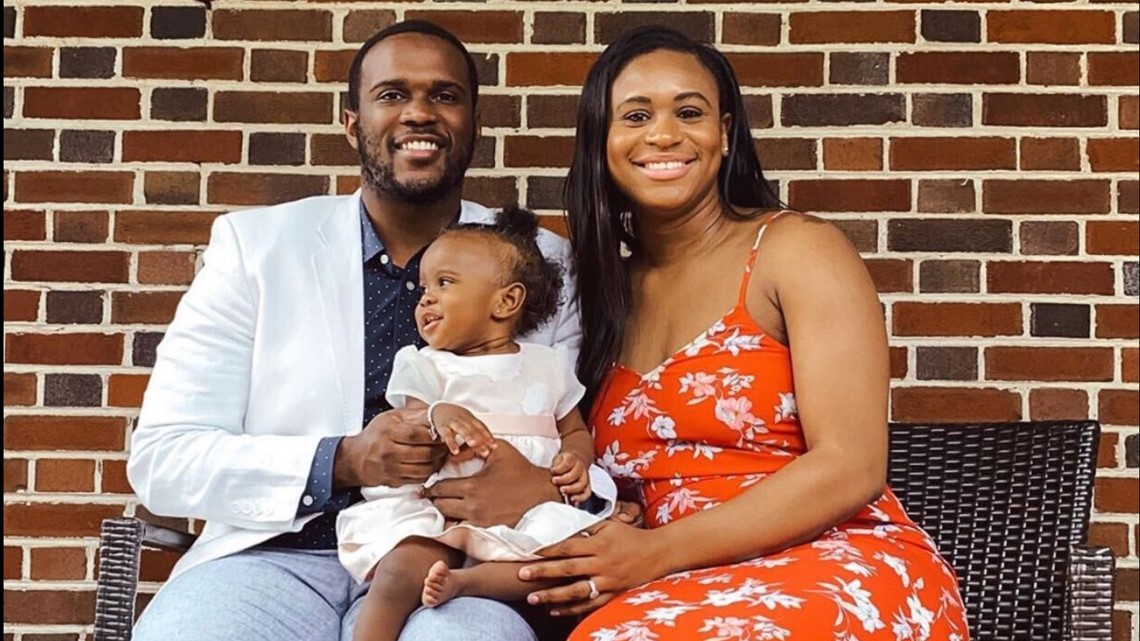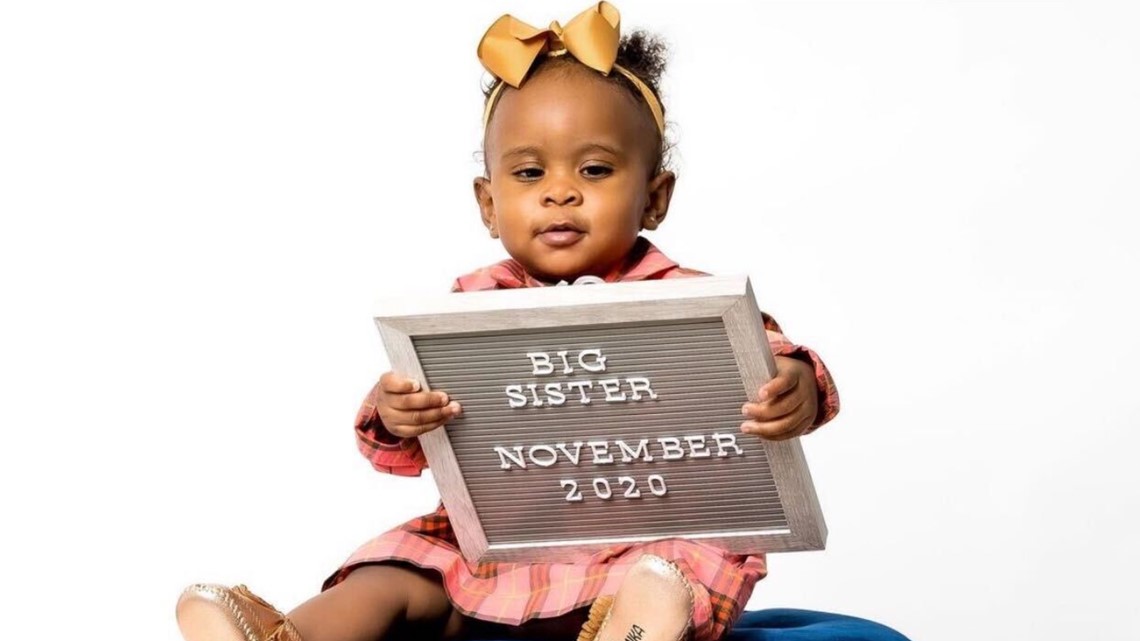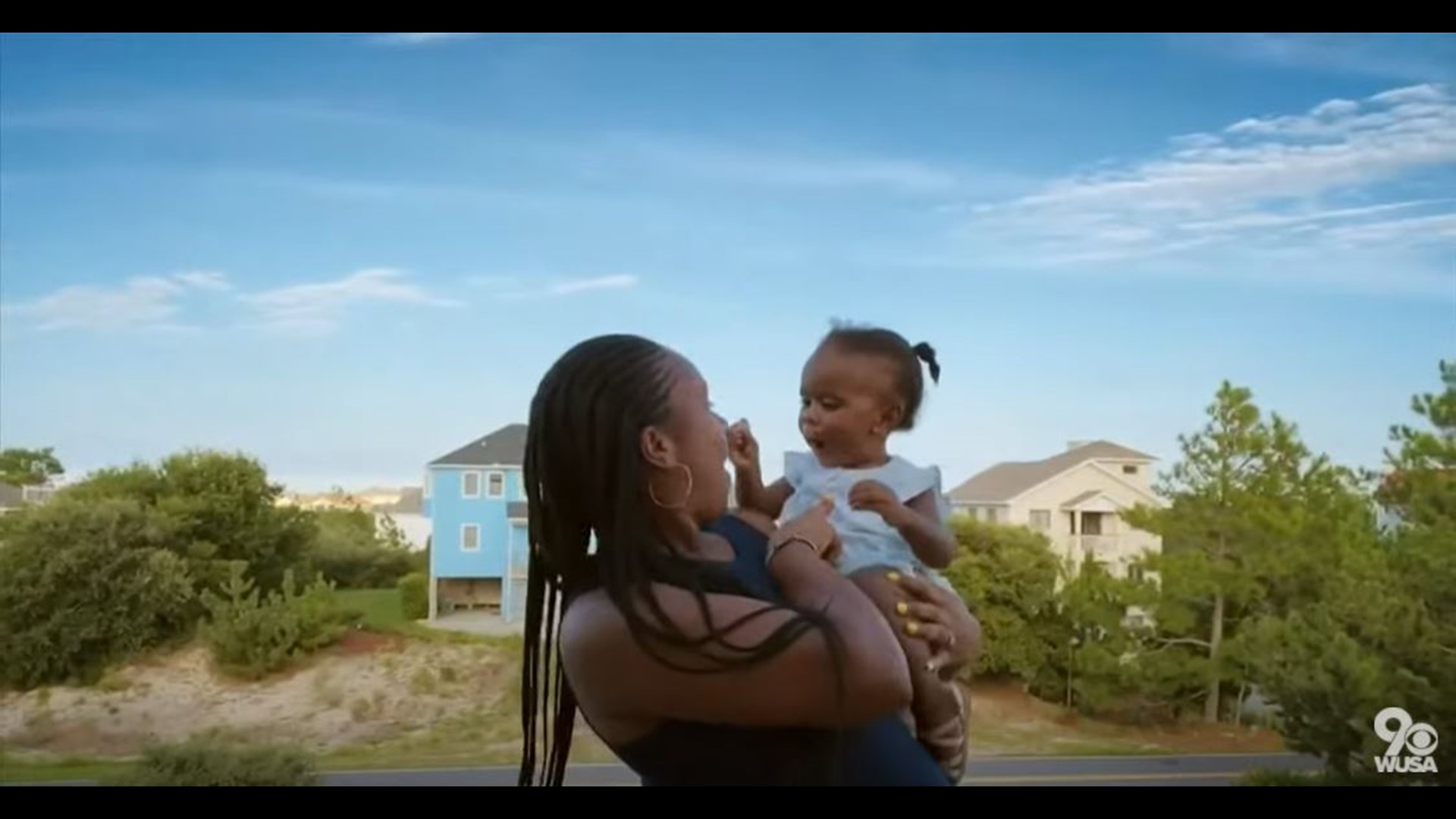BALTIMORE — Kamala Harris has formally accepted the Democratic nomination for vice president. Before she stepped on stage to deliver her acceptance speech, she played a video that featured her step-daughter, sister and niece.
But at the very end, Harris highlighted Sydney Carter, a young Black mother from Baltimore, Maryland. The video showed Carter lifting her 16-month-old daughter, Aria, in the air while asking her if one day she would like to become vice president, just like Harris.
"I did not expect to cry," Carter said. "But seeing my daughter and myself there, I just lost it."
When she finally saw the full video she became very emotional. That moment was more impactful than she initially realized.
Carter graduated from the University of Maryland College Park in 2015 and currently teaches third grade in Baltimore. She went to high school with Harris' video producer, another Maryland native, Julian Hamer. The Harris team was looking to include young Black women and gave Sydney and her daughter a call.
Harris is the first Black woman on a major party presidential ticket.
Carter said she began to cry once she thought about what this historic moment meant to her and the doors it could open for her daughters.
"I just thought to myself, not only does she (Harris) look like me, but she looks like my kids," Carter said.


She and her husband are expecting their second daughter in November. She hopes America will one day become a country where her girls can also be in leadership positions.
"A lot of times we have to see someone do something first and then we realize, yes I can do that too," Carter said.
Black girls are ready to lead. However, they face a unique set of challenges that other girls may not experience. These challenges are met at the intersection of race and gender.
New research from the nonprofit Girls Leadership found that 48% of Black girls self-identify as leaders—the highest of all racial and ethnic groups. However, one in two Black girls said that they have experienced unfair treatment because of their race from teachers and administrators.
As a teacher, Carter understands that gender inequality and racism are barriers to Black girls seeing themselves as leaders and being able to engage in different forms of leadership.


For her daughters, Carter hopes that when they get older there will be even more opportunities for Black girls to lead.
"Them being so young now, they aren't going to remember everything that's been going on racially," Carter said. "But they are going to see when they are older, hopefully, a country and world where there are more people like Harris in these types of positions."

